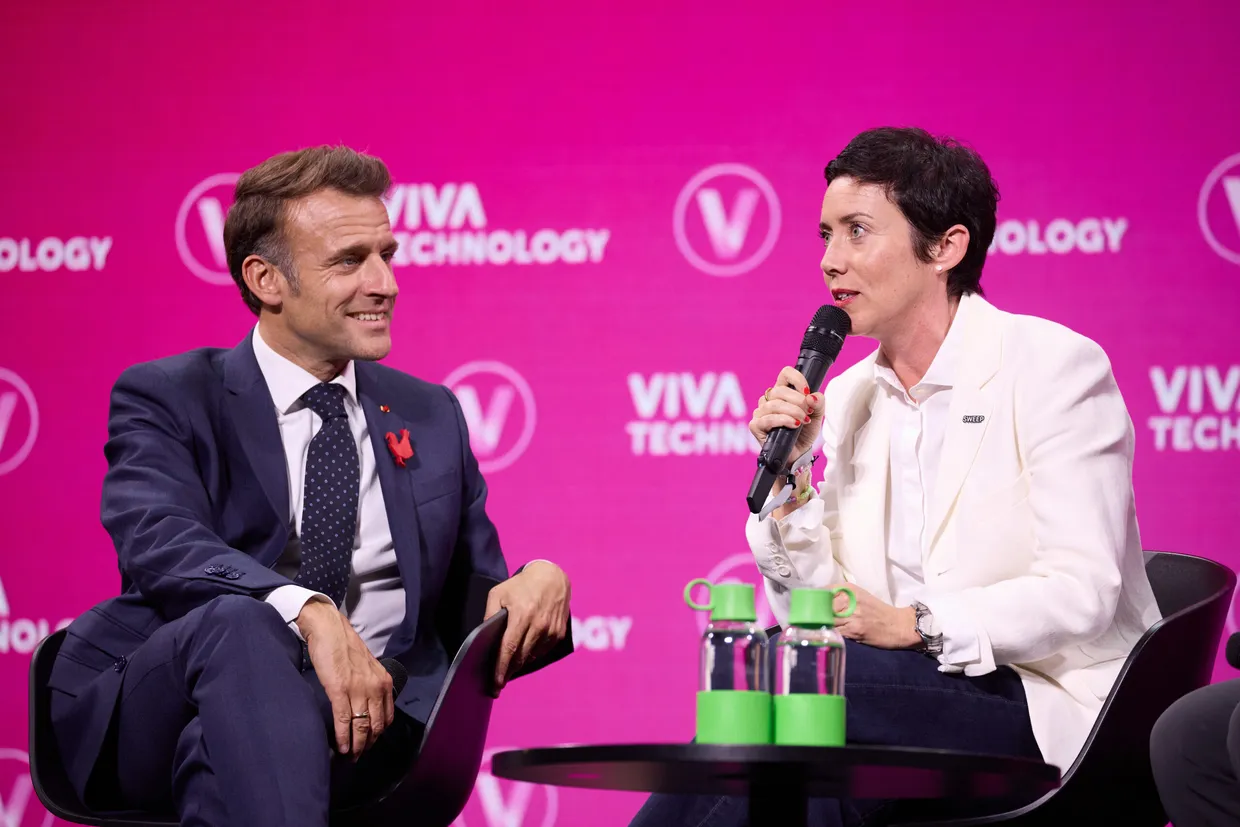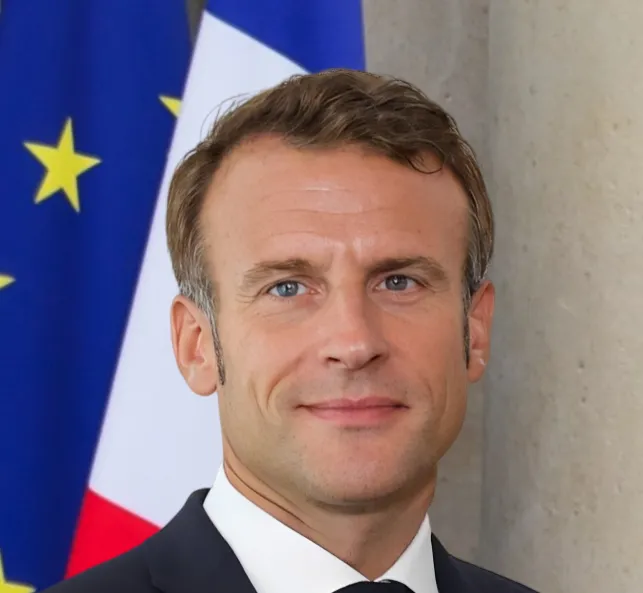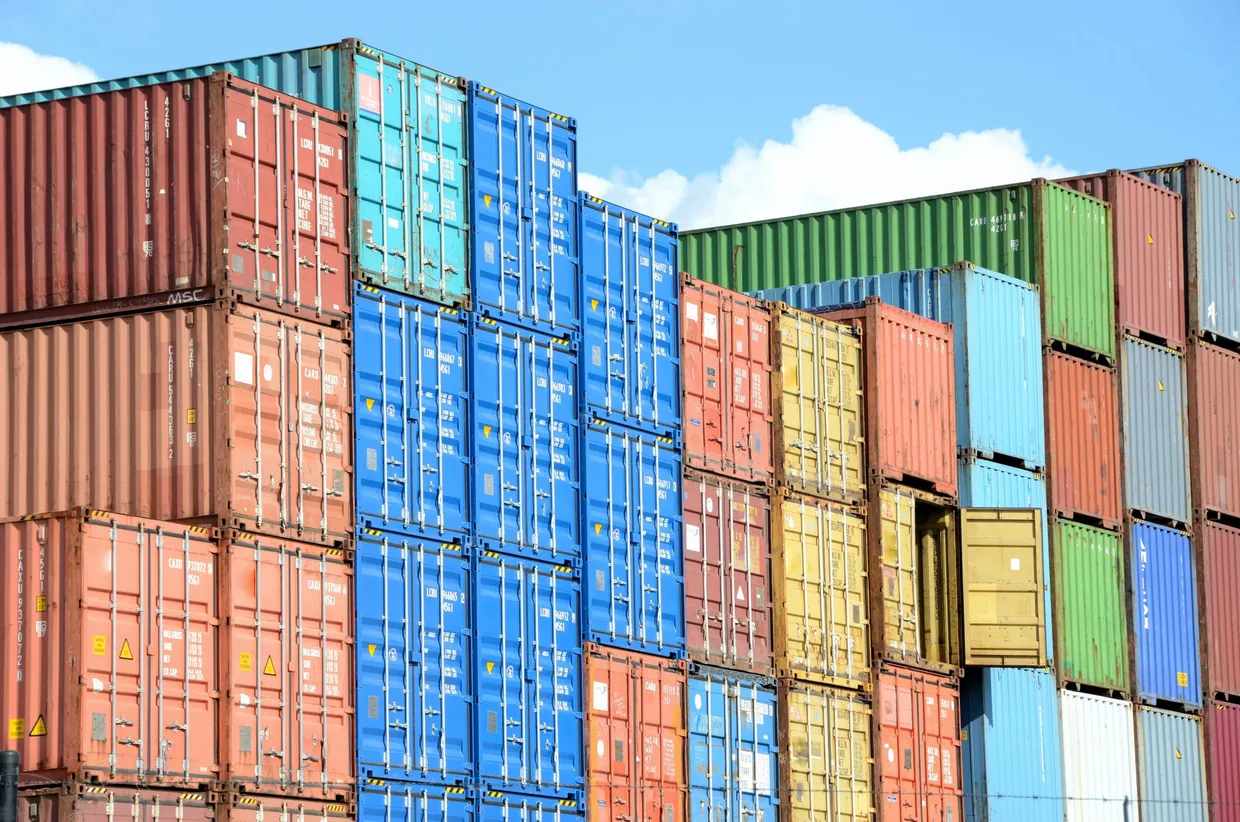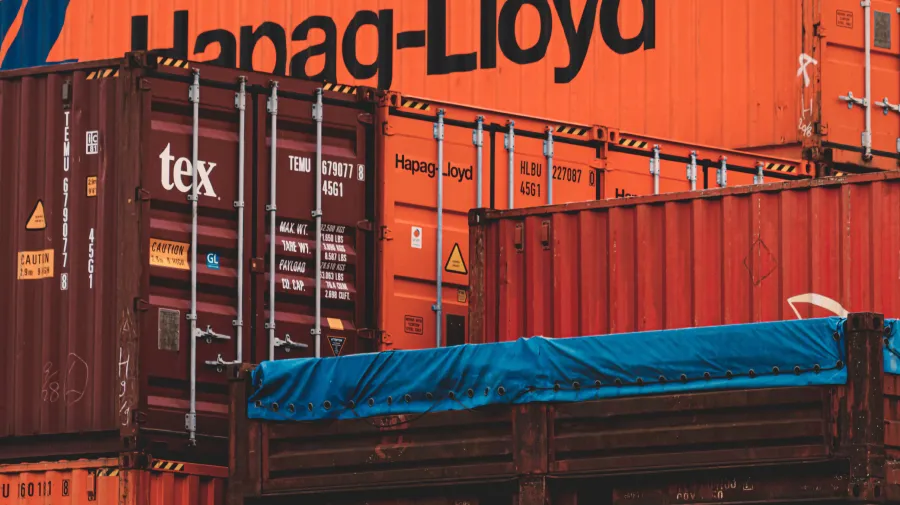At VivaTech 2025, Sweep CEO and co-founder Rachel Delacour was invited to join a live discussion with President Emmanuel Macron, alongside a panel of fellow French tech entrepreneurs.
While the panel covered AI, talent, and European tech strategy, Rachel brought a critical climate issue to the table: how can public procurement better support decarbonization?
The question: Can procurement be a climate lever?
Rachel highlighted a gap between France’s climate goals and how government money is spent. Too often, she pointed out, public purchasing decisions are driven purely by cost—even when lower-carbon alternatives are available.
She cited Sweep customer SNCF, France’s national rail company and a prominent Fortune Global 500 company with revenue in 2024 of €43.4bn, as a model. The company has made major changes to procurement practices to reduce emissions across its supply chain.
Rachel asked: When will the French government follow suit—shifting from a cost-first approach to one that supports climate performance and industrial sustainability?
The response: Long-term thinking, collaborative action
President Macron agreed that the current approach is flawed. He described the French government’s reliance on short-term budget cycles as a “real limitation”, saying it discourages investment in sustainable solutions.
The way forward, he explained, is to move from annual budgeting to multi-year planning—so agencies can account for long-term environmental value, not just immediate price tags.
“You have the power to change this”, replied Rachel, an interjection that led President Macron to invite Sweep to work directly with his team:
“I’m ready to do this with you—point by point. I’m making this commitment here in front of this audience ”
He also acknowledged the need for better tools to evaluate the long-term returns of climate-forward investments, and more flexibility for public buyers to choose suppliers based on sustainability—not just cost.
Rachel Delacour also underlined the urgency of the situation, adding that “of course, I would like to see you act faster at the national level to limit the environmental impact of all organizations, whether public or private.”






